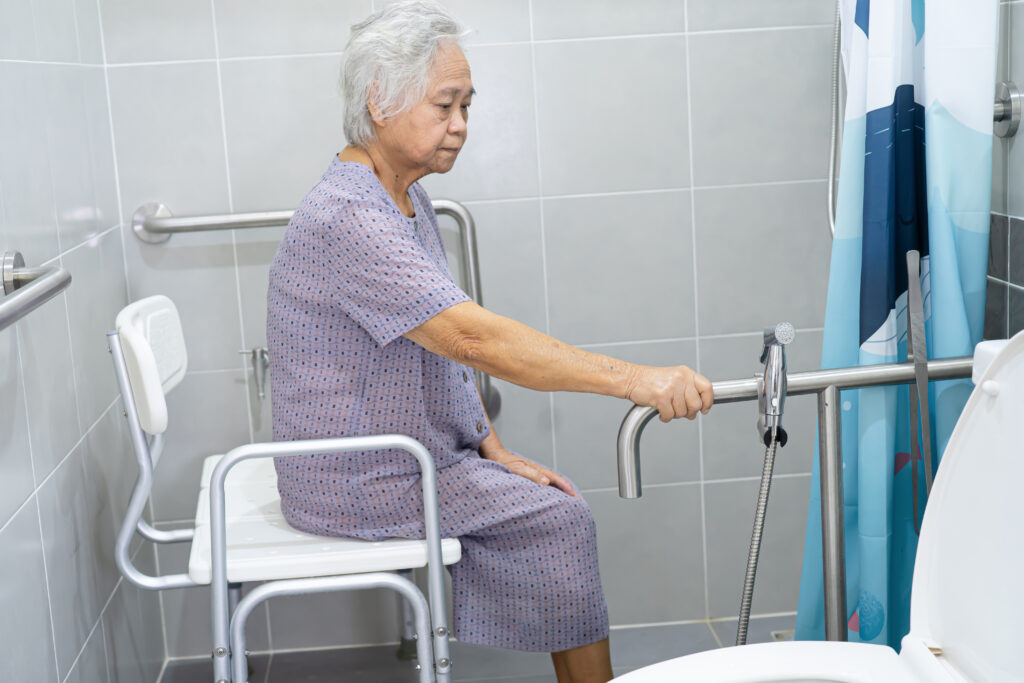As we age, our healthcare needs change. This is especially true for our aging parents, who may require more specialized care as they grow older. Identifying the healthcare needs of our loved ones can be a complex and emotional process. It’s not always clear what the needs are or what resources are available. However, with the appropriate tools and guidance, navigating the healthcare system can be a much easier process.
At Your Nurse Advocate Consulting, we understand the importance of identifying and addressing the healthcare needs of your aging loved one. It requires a comprehensive approach that takes into account their physical, emotional, and social needs. A good starting point is to schedule a visit with their physician or primary care provider. This visit can provide you with a baseline for their overall health and any underlying medical conditions that need to be addressed. It’s also important to take into account their living situation and support network, as this can have a major impact on their health outcomes.

Once you’ve identified the medical healthcare needs of your loved one, the next step is navigating the healthcare system to get the best care possible. This can be a daunting task, as the system can be complex and difficult to navigate. However, there are tools and resources available to help. Your Nurse Advocate Consulting offers virtual 1:1 consulting and online courses. We can provide you with the guidance and support you need to make informed decisions about your loved one’s care.
Here at Nurse Advocate Consulting we can help in a few ways.
- We are available for 1:1 consulting to help you identify the needs including how theta re managing at home. We then can put a plan in place that identifies the appropriate resources based on the needs of your aging loved on and yourself as the caregiver. We always take into consideration the family when planning. We begin this process with a free 30-minute consultation call. This gives you are chance to share your story. We will know by the end of the call if we can help you or not and then the next steps are up to you. We can give you a couple of tips and call it a day or you can ask us how we could help.
- For those that are not in a current crisis, we have our monthly maintenance program where we do 2 check-in calls per month and provide you with a hub of educational materials as well as letting you participate in open Q&A calls where you get to ask questions in a live private setting and get your answers in real time.
- For those families that like to “do it themselves” Our free Ultimate Resource Guide might be enough to identify the needs and select appropriate resources that are color-coded to keep it easy for you as you go through the free “Ultimate Resource Guide to Care for an Aging Parent.”
You could do a bit more of a deeper dive with our self-directed mini-course. Where we lead you through the assessment and walk you through identifying the resources with some 1:1 help from us.
In addition to seeking the help of a nurse advocate, there are other tools available to help you navigate the healthcare system. For example, Medicare’s website is a great resource for finding healthcare providers in your area and understanding what services are covered under their plan. You can also reach out to local support groups or community organizations for help and guidance.

Identifying the Healthcare Needs of Your Aging Loved One:
In our free guide and course, we look at 4 areas of Needs.
- Home Safety
- Health Management
- Nutrition and Hygiene
- Managing the Home
Identifying the healthcare needs of your aging loved one requires a thorough assessment of their physical, mental, and emotional health status. This assessment should involve a comprehensive review of their past medical history, medication use, and lifestyle habits. You should also consider their current living situation and support system. Look for any changes in their ability to perform daily tasks, such as dressing, bathing, or eating, as these may indicate a decline in health.
Once you have assessed their healthcare needs, it’s time to develop a healthcare plan that addresses their unique needs. This plan should include regular check-ins with their primary care physician, transportation to medical appointments, assistance with activities of daily living, and any necessary medical equipment or medication.
Write down all the needs you have identified and place them in one of the four categories.
Navigating the Healthcare System: Now it is time to find any resources you may need:

The number one “go to” resource we send everyone to first is your county’s Aging and Disability Resource Center. Depending on what state you live in it could have different names. Senior Center, Center of Aging, Senior Resource Center, etc. If you are unsure, call your local health department in your county and they will have the information for you.
The number two resource is to access the social worker at the doctor’s office. They can help with many things such as helping develop an advance directive at no charge, finding public resources, and more.
Depending on the needs will depend on what resources to consider. For example, in our course, if someone is falling multiple times in the home that would come under the need of home safety. We have a list with a corresponding color to the need that identifies resources that could be appropriate. In this example, one of the resources would be to ask the doctor for a Physical Therapy consultation to help determine the reason for the falls.
Navigating the healthcare system can be challenging, especially for those unfamiliar with the process. To get the best care possible for your aging loved one, you must be knowledgeable about the healthcare system’s inner workings and the available resources. Some tools to use include:
1. Research: Take the time to research healthcare providers, resources, and support groups in your area. Look for local resources that provide assistance with medical care, transportation, and housing options.
2. Communication: Open communication with your loved one’s healthcare team is critical. Be sure to ask questions, express any concerns, and keep them informed of your loved one’s current health status.
3. Documentation: Keep a record of all medical appointments, test results, and medications. This documentation can help you stay organized and track your loved one’s health progress.
4. Personalize Care Plans This is where you put together all the pieces and create a plan everyone can follow as well as agree with.

As a nurse advocate this is a primary service we offer to identify the needs, communicate with the healthcare team, insurance companies, line up the appropriate resources and finally put the plan in place. The plan must be a fit with you being a part of the planning process along with your aging parent’s feedback and participation if able. It needs to be a plan everyone can live with.
Personalizing the care plan for your loved is crucial as each person is unique in their needs and preferences. Consider what activities they enjoy, their dietary restrictions, and any cultural or spiritual preferences. Personalizing their care plan can help improve their quality of life while also making caregiving more manageable.
Conclusion:
Identifying the healthcare needs of your aging loved one and navigating the healthcare system can be a challenging experience. However, with the right tools and support, you can ensure that your loved one receives the care they deserve. At Your Nurse Advocate Consulting, we are here to help you every step of the way. Contact us today to learn more about our services and how we can assist you in caring for your aging loved one.
Thanks once again for stopping by and spending a few minutes with us. If we can be of services please let us know. We have included futher information in our resource sections at the end of this blog post.
Take care,
Pam and Linda
Your Nurse Advocates
“Compassionate Care for Aging Parents, Peace of Mind for the Adult Children.”
Resource Section
Your Nurse Advocate Consulting, Free Resources





